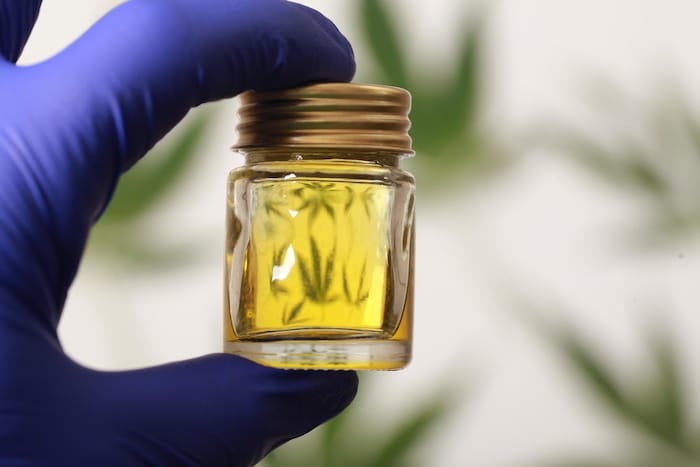Continuing improvements in laws around cannabis and legalization in more states are driving significant growth in the industry, with the US cannabis industry alone projected to hit $30 billion in market value annually by 2025.
Being a step ahead of the field, Autumn Brands develop sustainable cannabis cultivation with a holistic, artisanal insecticide-free approach before it was “on-trend.” Their understanding of quality, safe cultivation, with a 4th-generation farming background in their blood, give the brand a valued perspective on the emerging trends to watch in 2022.
“We have seen robust growth in the cannabis industry, which affects the consumer and the grower in a lot of ways, from buying options to pricing and more. It also means that the consumer needs to be savvier, making sure they understand that what they are putting in their bodies is clean and knowing the source,” says Autumn Shelton, Owner/CFO of Autumn Brands.
2022 Cannabis Industry Trends:
1. Increased supply
California’s ever-growing marijuana cultivation and lack of retailers has increased supply, creating a flooded market. Due to the wholesale market crash, there is more opportunity for new brands to try their hand in the market by coming in with ridiculously low prices. Some dispensaries find this enticing and are enjoying a race to the bottom while still keeping their retail prices the same for the consumer.
Other dispensaries understand that the wholesale market will turn up again one day and are focused more on long-term relationships with brands that follow a sustainable pricing model. The effect: this is hurting everyone in the industry including small to large farmers with wholesale prices dropping by up to 60% since mid-June for outdoor and greenhouse flower. The indoor flower market has only seen a slight downturn. But the increased cultivation tax effective January 1st, 2022 will create even more issues for the cultivators. The decrease in wholesale prices against a flat cultivation tax has changed the tax from being around 15% to 30-60% of the revenue.
2. Bigger brands are coming in
Cannabis is undoubtedly a growth industry, and the more prominent brands are coming in. Beverage companies such as Pabst, Lagunitas, Anheuser-Busch, and more are leaping into creating cannabis-infused beverages. The beverage companies see that more and more states are legalizing cannabis and are also readying themselves for when or if the federal government legalizes cannabis, busily creating the next wave of innovative products.
3. Cannabis is becoming a global commodity
The worldwide demand for cannabis has skyrocketed with the pandemic bringing a The worldwide demand for cannabis has skyrocketed with the pandemic bringing a massive increase in sales globally, with the global market estimated to be at $130 billion by 2025. More countries like Poland, Ukraine, and South Africa are moving toward legalization, and U.S. cannabis companies are making moves toward international growth.
For global cannabis commoditization, there must be universal standards. Currently, International law is the barrier, and The United Nations has been resisting legalizing cannabis. If there is a worldwide trend toward legalization, this would mean that cannabis would be treated like any global commodity – grown where the costs are lowest, then exported.
4. Consumers are increasingly interested in clean products
Consumers are more educated about everything they are ingesting, including cannabis. However, every state that has legalized recreational cannabis also requires quality and contaminant testing, but there is no central system regulating cannabis products.
Reputable and clean brands like pesticide-free Autumn Brands are transparent in communicating to their consumers that the cannabis it grows is sustainable and clean with correct labeling. Ask for test results and go to a dispensary that vets their vendors. Consider only purchasing from reputable, transparent brands.
5. A new bill has a solid chance of getting through for federal legalization
The States Reform Act proposes to remove cannabis from the Controlled Substances Act, making it regulated like alcohol, allowing states to determine their own laws. The bill would allow interstate commerce and remove the legal obstacles preventing U.S. cannabis companies from accessing the financial system. If it doesn’t pass, it is at least an encouraging starting point for federal legalization, which, according to a recent Gallup poll, 68% of Americans support.
About Autumn Brands
Autumn Brands is a 50% women-owned and operated cannabis cultivator and creator of top-grade health and wellness products. The vision of the two families’ spray-free approach allows for a PURE guarantee, providing a clean and potent cannabis experience. PURE stands Pesticide-free, User-first, Responsibly grown, and Eco-friendly. Autumn Brands produces top-quality strains built on their six generations of farming expertise that started in Holland more than a century ago. For more information, follow us on @AutumnBrands, visit www.autumnbrands.com, or email leighanne@anderson-pr.com.







